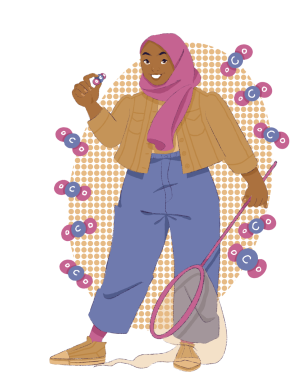“People can do a little more good, a little more often”: Recent study finds that random acts of kindness significantly impact well-being
August 30, 2022
Researchers found that random acts of kindness can affect people’s well-being significantly more than expected, according to a study published Aug. 19.
Based on experiments ranging from giving someone a cup of hot chocolate to delivering cupcakes in the park, the recently published study found that random acts of kindness affected both the giver and receiver significantly more than expected. The researchers conducted a total of eight experiments involving students, in order to gauge the effects of the acts. The study’s co-author Amit Kumar said that although researchers know kindness significantly improves a person’s well-being, people underestimate the effect it will have on the receiver.
“One of the interesting questions becomes why people often don’t act in ways that are likely to make them feel better,” said Kumar, assistant marketing and psychology professor. “What we were interested in studying here was this notion that these seemingly small prosocial acts … can actually make a significant difference in people’s lives.”
Kumar said because people underestimate the positive effects of these acts, more often than not, people don’t perform them. One of the experiments included students at the University engaging in an exercise in which they performed different acts of kindness for others, such as baking cookies or offering a peer a ride home, and then filled out a questionnaire afterward, Kumar said. At the same time, the recipients were contacted and asked how they felt.
The researchers found that in all of the experiments, both the recipients and performers ended up in better moods than normal after the act, Kumar said, and the recipients felt significantly better than the performers anticipated.
“One reason for why people undervalue the impact of their prosociality is because they don’t seem to fully appreciate the role,” Kumar said. “Performers, in an act of kindness, can miss out on the fact that simply engaging in a warm prosocial act can be meaningful for recipients. Beyond whatever it is that they’re giving them, (performers) think they’re doing something (that’s) relatively inconsequential.”
Co-author Nicholas Epley said the research is part of a broader research program of people avoiding human connection and reaching out to others despite its positive impact.
“People do act in line with their expectations, but those expectations can be off,” Kumar said. “If you’re underestimating the positive impact that you’re having on other people, that can prevent you from being kinder more often in daily life.”
Kumar said he hopes this research helps people become more aware of their impact on others and be kind when they have the opportunity.
“The data suggests that our expectations are off a bit in ways that might leave us being less kind naturally than we might otherwise want to be,” said Epley, a behavioral science professor at the University of Chicago. “It’s not because we don’t necessarily want to do this thing, but because we fail to appreciate just how positive the other person feels. … I think our data suggests that people can do a little more good, a little more often than they might think, so my hope is they get nudged in that direction.”















